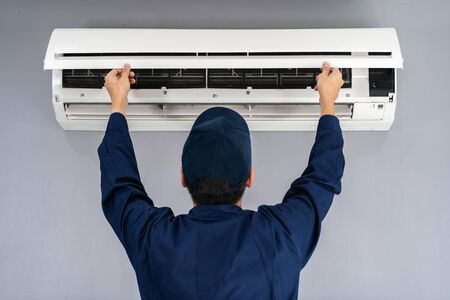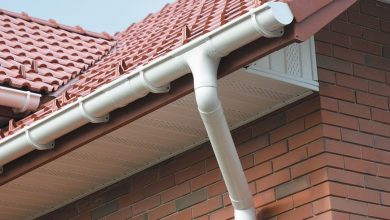How to Save Money on Air Conditioner Replacement Costs

Replacing an air conditioner is a significant investment, but with some careful planning and smart choices, you can reduce your expenses without compromising on quality. Here are several strategies to help you save money on air conditioner replacement costs.
-
Do Your Research
Before committing to a new air conditioner, it’s essential to do your homework. Understanding the different types of air conditioners, their features, and their efficiency ratings can help you make an informed decision.
- Types of Air Conditioners: Central air conditioners, ductless mini-splits, window units, and portable units are all options. Central air conditioners are typically the most efficient for cooling an entire home, while ductless mini-splits are ideal for homes without ductwork. Window units and portable units are suitable for smaller spaces or single rooms.
- Efficiency Ratings: Look for units with high SEER (Seasonal Energy Efficiency Ratio) ratings. The higher the SEER rating, the more efficient the unit, which translates to lower energy bills.
By understanding the various options available, you can choose the right system for your home and budget.
-
Consider Energy Efficiency
While energy-efficient air conditioners often come with a higher upfront cost, they can save you money over time through reduced energy bills. Here’s why energy efficiency matters:
- Lower Operating Costs: Energy-efficient units use less electricity to cool your home, which can lead to significant savings on your utility bills.
- Environmental Impact: Efficient systems reduce your carbon footprint, contributing to a more sustainable environment.
- Rebates and Incentives: Many utility companies and government programs offer rebates and incentives for installing energy-efficient systems. These can offset the initial higher cost.
-
Shop During Off-Peak Seasons
Timing your purchase can have a big impact on the cost of your new air conditioner. HVAC companies are often busier in the summer when demand for cooling systems is high, which can drive up prices. Instead, consider shopping for and installing your air conditioner during the fall or spring when demand is lower. During these off-peak seasons, many companies offer discounts and promotions to attract customers.
-
Get Multiple Quotes
Don’t settle for the first quote you receive. Contact multiple HVAC companies to get detailed quotes for the cost of a new system and installation. Here’s how to approach this:
- Request Detailed Quotes: Ensure that each quote includes a breakdown of costs, including the unit price, installation fees, and any additional charges.
- Compare Offers: Look at what each company offers in terms of warranties, service agreements, and installation quality.
- Negotiate: Use the quotes to negotiate better deals. If one company offers a lower price, ask another if they can match or beat it.
By comparing multiple quotes, you can find the best deal that fits your budget and needs.
-
Look for Rebates and Incentives
Rebates and incentives can significantly reduce the cost of a new air conditioner. Here’s where to look for these savings:
- Utility Companies: Many utility companies offer rebates for customers who install energy-efficient systems. Check with your local utility provider to see what programs are available.
- Government Programs: Federal, state, and local government programs often provide incentives for energy-efficient home improvements. Websites like Energy Star and the Database of State Incentives for Renewables & Efficiency (DSIRE) are good resources.
- Manufacturer Promotions: Air conditioner manufacturers frequently offer promotions and rebates. Visit their websites or ask your HVAC contractor about current offers.
-
Consider Financing Options
If paying for a new air conditioner upfront is challenging, consider financing options. Many HVAC companies offer financing plans with low or no interest rates. Financing can spread the cost over several months or years, making the expense more manageable. Here are some tips:
- Check Interest Rates: Look for financing options with low or no interest to minimize the additional cost.
- Understand Terms: Make sure you understand the repayment terms, including any fees for late payments or early repayment.
- Budget Accordingly: Ensure that the monthly payments fit within your budget to avoid financial strain.
-
Hire a Reputable Installer
The quality of the installation can significantly impact the performance and longevity of your new air conditioner. Hiring a reputable air conditioner installer ensures that your system is set up correctly and operates efficiently. Here’s how to find a good installer:
- Check Reviews: Look for installers with positive reviews on websites like Yelp, Google, and Angie’s List.
- Ask for References: Reputable companies should provide references from previous customers.
- Verify Credentials: Ensure the installer is licensed, insured, and certified by recognized organizations like NATE (North American Technician Excellence).
-
Maintain Your New Unit
Proper maintenance is key to ensuring your air conditioner runs efficiently and lasts as long as possible. Regular maintenance can help you avoid costly repairs and extend the life of your unit. Here are some maintenance tips:
- Change Filters: Replace or clean air filters every 1-3 months to ensure proper airflow and efficiency.
- Schedule Annual Tune-Ups: Have a professional inspect and service your air conditioner at least once a year. This can catch small issues before they become major problems.
- Keep the Unit Clean: Make sure the outdoor unit is free from debris and vegetation to maintain good airflow.
- Check for Leaks: Regularly inspect the ductwork for leaks and seal any you find to improve efficiency.
Additional Tips to Save on Replacement Costs
- Evaluate Your Home’s Insulation:
- Proper insulation can reduce the load on your air conditioner, making it more efficient and possibly allowing you to purchase a smaller, less expensive unit.
Use a Programmable Thermostat:
- A programmable thermostat can help you better control your home’s temperature, reducing the workload on your air conditioner and saving energy.
Consider a Smaller Unit:
- Sometimes, a smaller unit can be more efficient if it’s the right size for your home. An oversized unit can cycle on and off too frequently, reducing efficiency and increasing wear and tear.
Upgrade Your Ductwork:
- If your ductwork is old or inefficient, upgrading it can improve your new air conditioner’s performance and efficiency.
Bundle with Other Home Improvements:
- If you’re planning other home improvements, such as installing new windows or adding insulation, consider bundling these projects with your air conditioner replacement. This can sometimes lead to discounts and improved overall efficiency.
Conclusion
Replacing an air conditioner is a significant investment, but with careful planning and smart decisions, you can reduce the cost without sacrificing quality. By researching your options, considering energy efficiency, shopping during off-peak seasons, getting multiple quotes, looking for rebates, considering financing, hiring a reputable installer, and maintaining your new unit, you can save money on your air conditioner replacement cost. Additionally, taking extra steps like evaluating your home’s insulation and using a programmable thermostat can further enhance your savings. These strategies will help ensure you get the best value for your money while keeping your home comfortable year-round.




